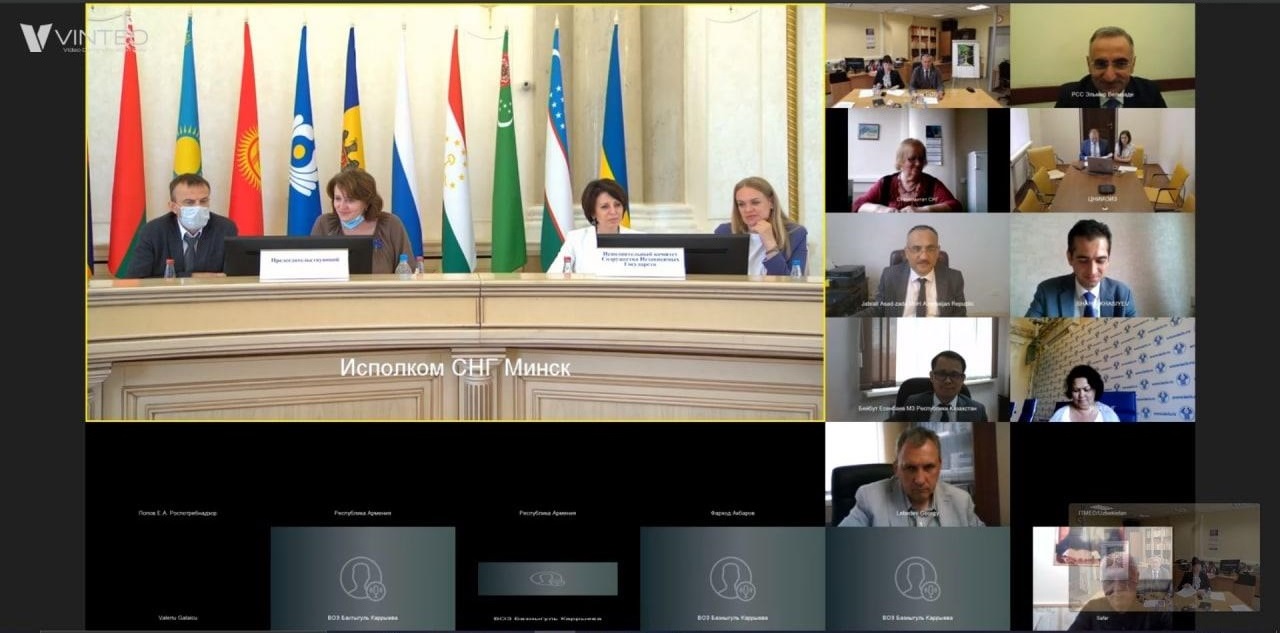
On 8 June 2021 a meeting of the Working Group on the integration of national e-health systems of the CIS Member-States was held via Videoconference.
Representatives of Armenia, Azerbaijan, Belarus, Kazakhstan, Kyrgyzstan, Russia, Tajikistan, Uzbekistan, WHO Regional Office for Europe, Expert Council of the IPA CIS-RCC, the Interstate Statistical Committee, the Executive Committee of the Regional Commonwealth in the field of Communications and the CIS Executive Committee participated in the meeting via videoconferencing.
Elena Bogdan, First Deputy Minister of Health of the Republic of Belarus, Chairperson of the Working Group on integration of national e-health systems of the CIS Member-States, opened the meeting of the Working Group.
Elena Shamal, Director of the Department of Humanitarian Cooperation, General Political and Social Problems, coordinates this direction from the CIS Executive Committee.
The experts considered the issues related to the order of maintenance and use of normative and reference information in healthcare of the Commonwealth member states, as well as identification of key data priorities and actions in the field of digital health in Europe.
The Chairman of the RCC Commission on the Development of Information Society and Digital Transformation, Deputy Minister of Transport, Communications and High Technologies of the Republic of Azerbaijan Velizade Elmir Tofik oglu made a report on the role of the Regional Commonwealth in the field of Communications in developing the information society and digital transformation in the Commonwealth of Independent States.
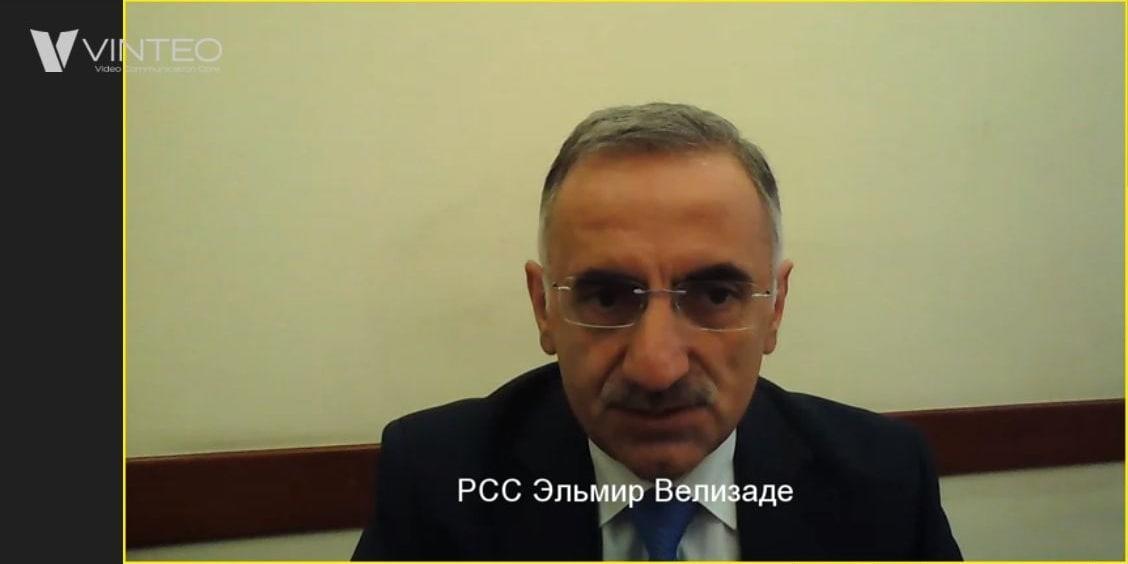
In his report, the Chairman of the RCC Commission on the Development of Information Society and Digital Transformation acquainted the participants of the meeting with the stages of development of informatization structures in the RCC over 30 years, also acquainted them with the history of the Coordination Council of the CIS Member-States on Informatization at the Regional Communications Commonwealth, at the origins of which he stood.
In his presentation Velizade E.T. described in detail the normative base of the informatization sphere and the activity of the IPA CIS RCC Expert Council.
One of the main directions of cooperation in the field of e-health is the development of the legal framework of the CIS Member-States, regulating the use of information and communication technologies in health care, including the Model Law of October 28, 2010 "On Telemedicine Services".
A draft model law "On Digital Healthcare" is currently under development by the IPA CIS Expert Council - RCC.
He also emphasized that the Regional Commonwealth in the field of Communications has all the necessary tools to implement the set goals.
The RCC has the RCC Commission on Development of Information Society and Digital Transformation, RCC Telecommunications and Infocommunication Operators Board, Expert Council of the IPA CIS-RCC, also, the RCC works closely with the Basic Organization of the CIS Member-States in the field of ICT.
Within the Working Bodies of the RCC, representatives of national agencies of digitalization, communications and telecommunications successfully address the full range of issues on the digital agenda.
The Chairman of the RCC Commission on the Development of Information Society and Digital Transformation invited the members of the Working Group on the integration of national e-health systems of the CIS Member States to work together on the new draft document.
Then the Chairman of the RCC Commission on the Development of Information Society and Digital Transformation familiarized the participants of the meeting with the priorities of the Commission headed by him, namely:
- cooperation in the field of formation of the digital market;
- elaboration of approaches and exchange of proposals for the development of electronic commerce;
- exchange of experience in implementing the UN Sustainable Development Goals;
- Exchange of information and experience in the implementation of e-government, as well as in the application of ICT in various areas of state and society;
- cooperation and elaboration of approaches of RCC members on Internet governance and protection of children in the online environment to ensure the benefits of ICT in a safe and secure environment;
- promoting the development of ICT infrastructure, increasing the availability of ICT services and products to the public, and modernizing the ICT education system
- creation of favorable conditions for companies in the ICT sector;
- cooperation in the implementation of the adopted Agreements of the CIS member states.
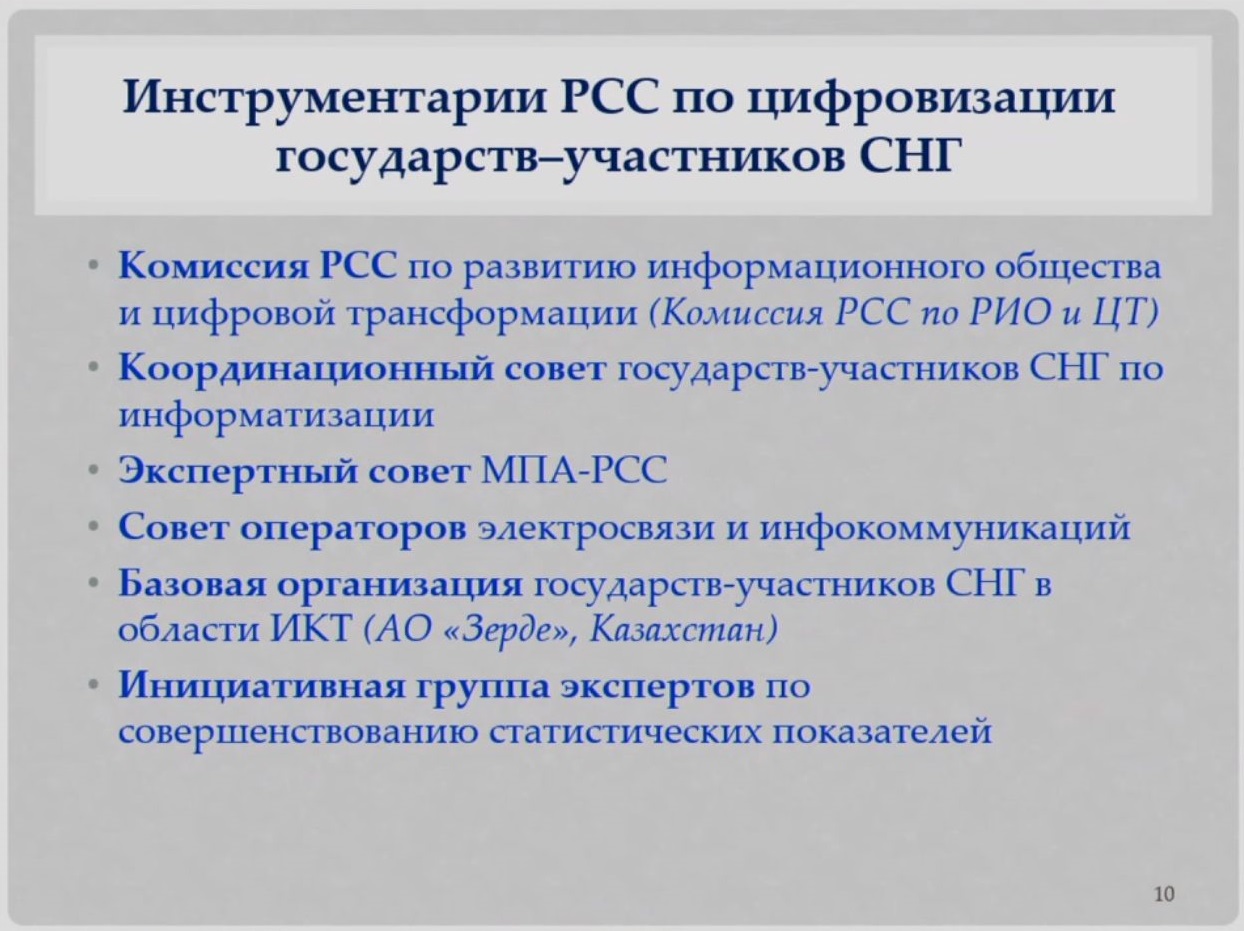
The Chairman of the RCC Commission on the Development of Information Society and Digital Transformation in his speech paid special attention to the prospects of ICT market development in the CIS for the implementation of the Sustainable Development Goals, viz:
- Developing e-health to ensure healthy lifestyles and promote well-being for all at all ages,
- the use of telecommunications/ICTs to ensure inclusive, equitable, quality and secure education, including the enhancement of knowledge in the field of ICTs and e-government,
- developing and regulating infocommunications infrastructure to ensure open, safe and resilient cities and human settlements,
- monitoring of environmental conditions, availability and sustainable use of natural resources,
- promoting innovation and partnership in the implementation of Internet of Things technologies and their interaction in telecommunication networks, including 4G, IMT-2020 and next-generation networks.
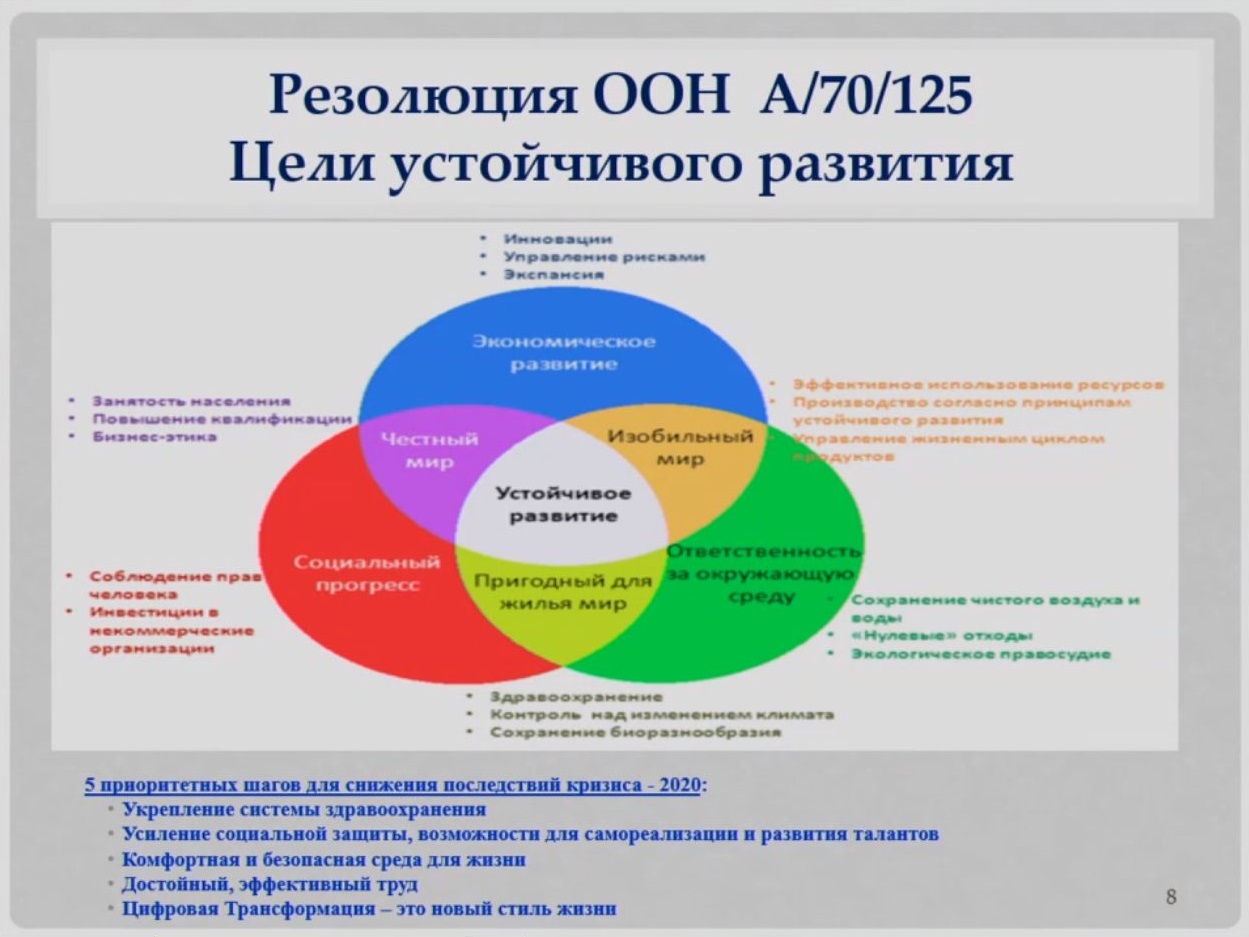
In conclusion, the Chairman of the RCC Commission on the Development of Information Society and Digital Transformation addressed to the members of the Working Group on the integration of national e-health systems of the CIS member states with specific proposals for further cooperation, namely:
- Advice on technical and technological issues,
- Assistance in preparation of strategic documents,
- Joint elaboration of a clear conceptual framework,
- Consideration of the issues at the meetings of RCC Commission on the Development of Information Society and Digital Transformation,
- Involvement of the Baseline Organization of the CIS Member-States in the field of ICT as experts,
- Involvement of the potential of the RCC Telecommunications and Infocommunication Operators Board,
- Interaction on the development of model laws on e-health.
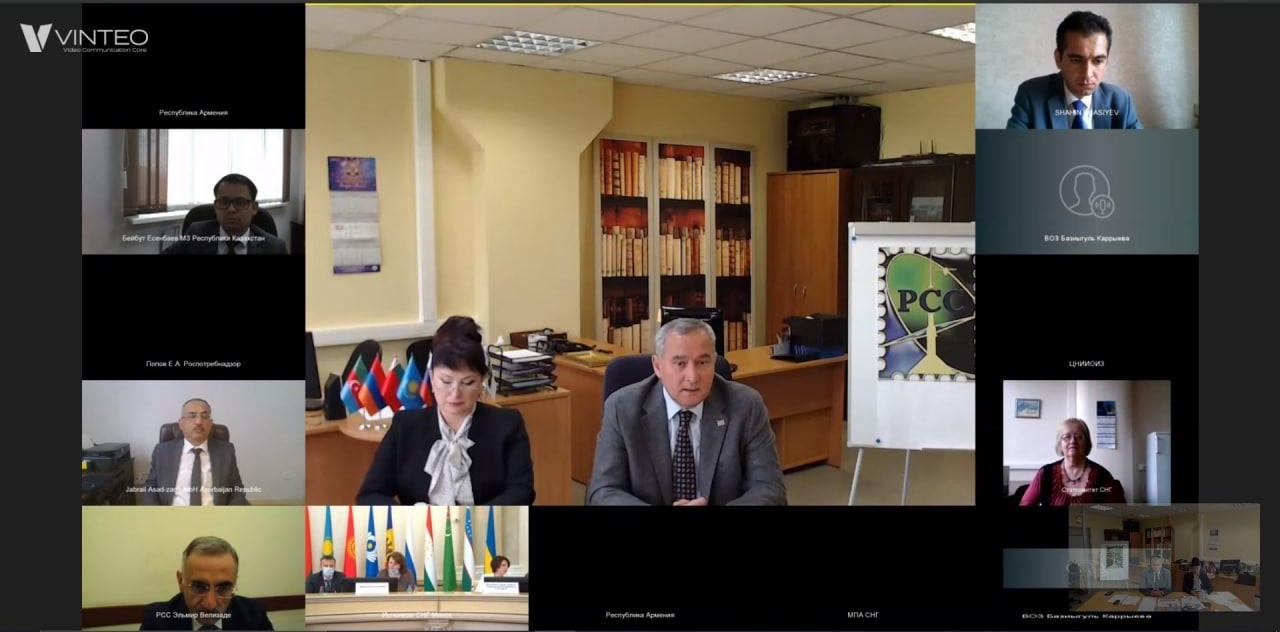
Nurudin Mukhitdinov, General-Director of the RCC Executive Committee, in his speech noted the importance of intensifying mutually beneficial interaction of the CIS sectoral cooperation bodies, and suggested considering a format for further coordinated approach on digital transformation issues of the CIS Health Cooperation Council and the Regional Commonwealth in the field of Communications.
The General-Director of the RCC Executive Committee, using the example of the development and implementation of digital television, reminded the participants of the problem due to the lack of harmonization of PAL and SECAM analogue color television systems in different countries of the world in the past. It took the International Telecommunication Union about 60 years to solve this problem.
In his speech, Mr. Mukhitdinov noted the importance of convergence and harmonization of such promising areas as:
- development and implementation of e-health standards in the CIS Member-States on the basis of international standards,
- development of unified electronic protocols for patient information exchange based on international standards used in e-health,
- the need to continue the convergence of the processes of creating compatible e-health systems of the CIS Member-States with the subsequent provision of their interaction for publicly accessible and quality health care to the population in the territories of the member states, regardless of the social status and place of residence of citizens.
In order to solve important strategic tasks and promising directions on the digital agenda, greater efficiency can be achieved with active mutually beneficial interaction of the CIS industry cooperation bodies at the regional, inter-industry, and international level.
In conclusion, Nurudin Mukhitdinov, General-Director of the RCC Executive Committee, noted the highly professional approach of the working group members in reviewing topical issues on the agenda and expressed his hope for further mutually beneficial fruitful cooperation between our CIS industry unions.
Chairman of the Working Group on the integration of national e-health systems of the CIS Member-States Elena Bogdan, concluding the meeting, expressed gratitude and appreciation to the leadership of the RCC Executive Committee and the Chairman of the RCC Commission on the Development of Information Society and Digital Transformation for active participation, initiative and support, as well as readiness for further joint work on digital transformation.
It is planned that the next meeting of the working group will be held online in July.
Reference:
The international legal framework for the development of the digital environment in the Commonwealth is currently used to implement the objectives set forth:
- Regulations on the Coordination Council of the CIS Member-States on Informatization at the Regional Commonwealth in the field of Communications, approved by the Decision of the Council of Heads of State of the Commonwealth of Independent States of October 7, 2002:
P. 1.1. The Coordination Council of the CIS Member-States on Informatization at the Regional Commonwealth in the field of Communications (hereinafter - the Coordination Council) shall be established to coordinate cooperation among the CIS Member-States in the field of informatization.
P. 1.3. The Coordination Council shall carry out its activities in close cooperation with the CIS Executive Committee as well as sectoral cooperation bodies of the CIS Member-States.
- The Strategy for Cooperation of the CIS Member-States in the Building and Development of the Information Society until 2025 and the Action Plan for its implementation were approved by the Decision of the Council of Heads of State of the Commonwealth of Independent States of October 28, 2016:
P. 4.4. Development and implementation of modern applications
P. 5.1. Organizational mechanisms
The implementation of the Strategy and the Action Plan is regularly reviewed at meetings of the RCC and the CIS Coordination Council for Informatization at the RCC with the participation of representatives of the CIS sectoral cooperation bodies. Upon review in the prescribed manner the reports are submitted to the CIS Economic Council.
P. 5. Cooperation in the development and implementation of advanced information and communication technologies (ICTs) applications
P. 5.1. Exchange of information and experience in the implementation of ICT applications in the field of e-health
P. 5.2. Implementation of joint projects on the implementation of specific eHealth ICT applications
- The concept of cooperation of the Commonwealth of Independent States Member-States in the field of digital development of society and the plan of priority measures for its implementation, approved by the Decision of the Council of Heads of State of the Commonwealth of Independent States of October 25, 2019
П. 4.3. Development of proposals for digital support of key services and applications of information and communication technologies - e-commerce, e-health, e-notary, e-learning for implementation in national programs and regional initiatives.















